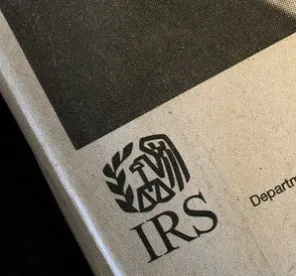In a recently issued taxpayer-favorable opinion, the Washington Appellate Court rejected the apportionment methodology used by the Department of Revenue, which sourced service receipts to the location of a taxpayer’s customers’ customers. The Court then affirmed the taxpayer’s methodology, which sourced the receipts to the location of its customers. LendingTree, LLC v. State of Wash. Dep’t of Revenue, no. 80637-8-I (Wash. App. Ct. Mar. 30, 2020) (“LendingTree Op.”).
The dispute concerned the receipts LendingTree, LLC (“LendingTree”) earned from operating its online loan marketplace for purposes of Washington’s Business and Occupation Tax. LendingTree’s business sought to match prospective borrowers and lenders though its website. Prospective borrowers provided LendingTree with requested financial information for no charge, and LendingTree analyzed this data to make referrals to lenders. Lenders paid fees to LendingTree related to its referral services. On audit, the Washington Department of Revenue (“Department”) took the position that LendingTree should have apportioned its service receipts based on the location of potential borrowers rather than its lenders’ locations. Both the Administrative Review and Hearings Division and trial court found for the Department, and LendingTree appealed.
Washington law, like the law of other states, requires multi-state taxpayers earning income from the performance of services to apportion the income to Washington if a customer receives the benefit of the taxpayer’s services in Washington (see Wash. Rev. Code § 82.04.462(3)(b)(i)). A related Washington regulation clarifies where a customer engaged in business receives the benefit of a taxpayer’s service: If the service relates to a customer’s business activities (and the service does not relate to real or tangible property), then the benefit is received where the customer’s related business activities occur. See Wash. Admin. Code 458-20-19402(303)(c). Citing this regulation, the Appellate Court concluded that “taxes are attributed to the state where the lenders conduct their business activity that most closely or directly relates to the services performed by LendingTree” (LendingTree Op. at 5).
The Appellate Court went on to conclude that the services at issue were LendingTree’s referrals of prospective borrowers to lenders, and that the lenders’ related business activities were their receipt and evaluation of the referrals at lender business locations. The Court rejected the Department’s argument that lenders received the benefit of LendingTree’s services where the borrowers (LendingTree’s customers’ customers) were located, reasoning that lenders received no benefit from LendingTree’s services until LendingTree made referrals to lenders identifying prospective borrowers. In support of its conclusion, the Court noted that lenders did not even know the identity of potential borrowers at the onset of the referral evaluation process. (LendingTree Op. at 7).
In reaching its conclusion that service receipts must be apportioned based on where the customers received the benefit of the taxpayer’s services, rather than where the customers’ customers were located, the court relied on its recently published opinion in ARUP Laboratories, Inc. v. State of Washington Department of Revenue, no. 52349-3-II (Wash. App. Ct. Feb. 11, 2020) (“ARUP Op.”). Interpreting the same rules at issue in the LendingTree ruling, the court in ARUP concluded that receipts earned by an out-of-state laboratory for performing tests on fluid and tissue samples it received from Washington medical providers must be apportioned to Washington, where the medical providers were located. The court based its conclusion on “where ARUP’s customers receive the helpful or useful effect of its services” (ARUP Op. at 13) and reasoned that: “ARUP’s services assist medical providers in diagnosing their patients. The medical providers cannot diagnose their patients until they receive the results of the tests they ordered from ARUP” (id.). Consistent with the plain language of Washington’s statute, in both ARUP and LendingTree, while the customer (medical provider and lender) likely received the service (information obtained from testing results and referrals) electronically through the internet, the rulings hold that the benefit of the service (diagnosing patients and evaluating potential borrowers) was received at the customer’s physical business location.
Practice Note: These rulings provide additional support to taxpayers making arguments to a market sourcing state that the “market” the state must apportion to is the taxpayer’s market. Sourcing to a taxpayer’s customer market can be distortive, creating an inaccurate reflection of a taxpayer’s market.



 />i
/>i
